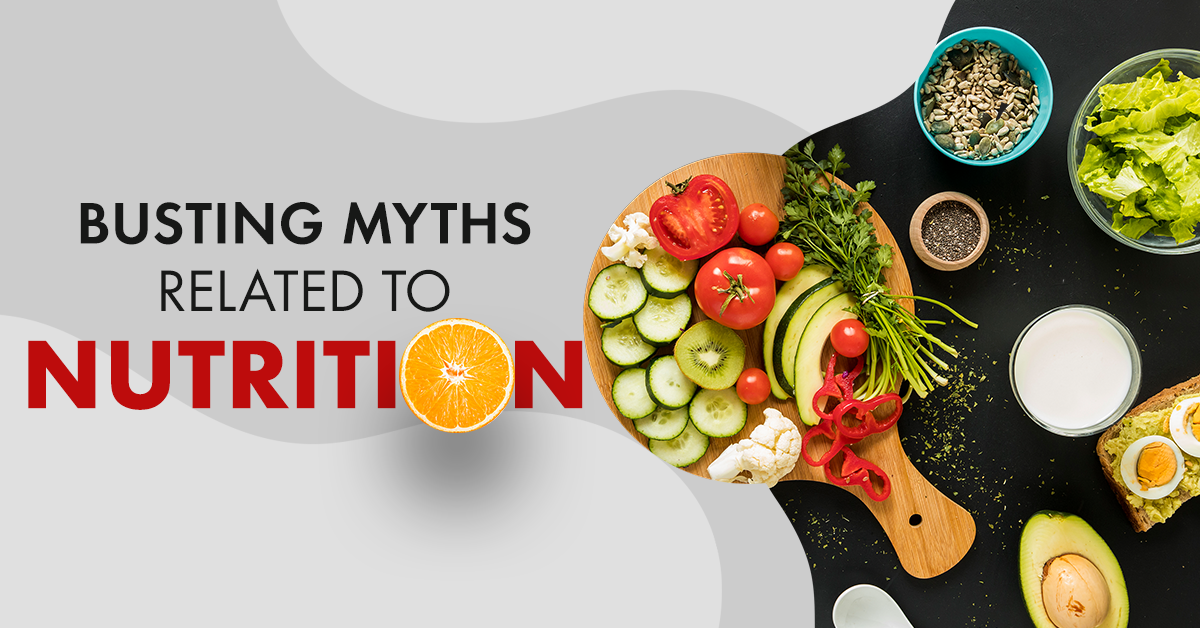Busting Myths Related to Nutrition

The nutrition world is rife with misinformation, leading to public confusion, mistrust of health professionals, and poor dietary choices. Since nutrition science is constantly changing, most people have a warped view of what constitutes a healthy diet. People are often drawn to believing a myth because of a desire to see results quickly.
Here are some myths and facts that you should know about:
1. Multi-grain and Wheat Bread Is Better Than White Bread
“Wheat bread” has caramel or molasses added to make it look dark and healthy. “Multi-grain” means that different kinds of refined grains may have been used. Always look for the words “100% whole wheat” or “100% whole grain” on the package.
2. Low fat means “Healthy”
If you think a low-fat diet is not necessarily a healthy one, then you are wrong. You should make sure you’re eating the right kind. Unsaturated fats are the ones our bodies need and use and lower blood cholesterol is found in foods such as oils, nuts, seeds, avocado, and oily fish. Low-fat products are only useful when they are helping you to reduce your intake of saturated fat, which is associated with high cholesterol and heart disease risk. You should always read the nutrition information label to make sure they’re free from added sugar.
3. Skim milk has more sugar than full-cream milk
A shift toward more natural eating has seen health enthusiasts keen to consume their foods in as natural a state as possible. It’s often argued that skim milk is more processed than full cream milk and that it contains more sugar, which isn’t the case. If you have heart disease it still makes sense to choose low or reduced-fat dairy. If you have a low fat intake overall and are slim and fit with no history of heart disease, full cream milk is unlikely to cause any harm.
4. Carbs make you gain weight
Just as fat has been blamed for promoting weight gain and heart disease, carbs have been shunned by many people over fears that consuming this macronutrient will cause obesity, diabetes, and other adverse health effects.
If you eat a moderate amount of nutritious carbs that are high in fiber, vitamins, and minerals like starchy root vegetables, ancient grains, and legumes will likely benefit your health — not harm it. Dietary patterns that contain a balanced mix of high-fiber carbs mainly from produce, healthy fats, and proteins, such as the Mediterranean diet are associated with a reduced risk of obesity, diabetes, certain cancers, and heart disease.
5. Breakfast is the most important meal of the day
If you eat breakfast, it can be an important factor in setting yourself up for a healthy day. However, research has shown that this might not be the case for most adults. For instance, research indicates that forgoing breakfast may result in reduced calorie intake.
Intermittent fasting
Moreover, if you are partaking in intermittent fasting, during which breakfast is either skipped or consumed later in the day. This has been linked to a plethora of benefits.
This includes improved blood sugar control and reductions in inflammatory markers. If you are doing Intermittent fasting, regular breakfast and then having your last meal earlier in the evening to maintain a fasting window of 14–16 hours is beneficial. If you are a growing child, teen or those with increased nutrient needs such as pregnant women. When you have certain health conditions, skipping meals may lead to negative health effects in these populations.
Conclusion
Although these nutrition myths are likely here to stay. Educating yourself by separating fact from fiction can help you feel more empowered to develop a nutritious and sustainable dietary pattern for yourself.
Regency Healthcare has certified and experienced dieticians and nutritionists. Visit today for a consultation.

 Call-an-Ambulance
Call-an-Ambulance



